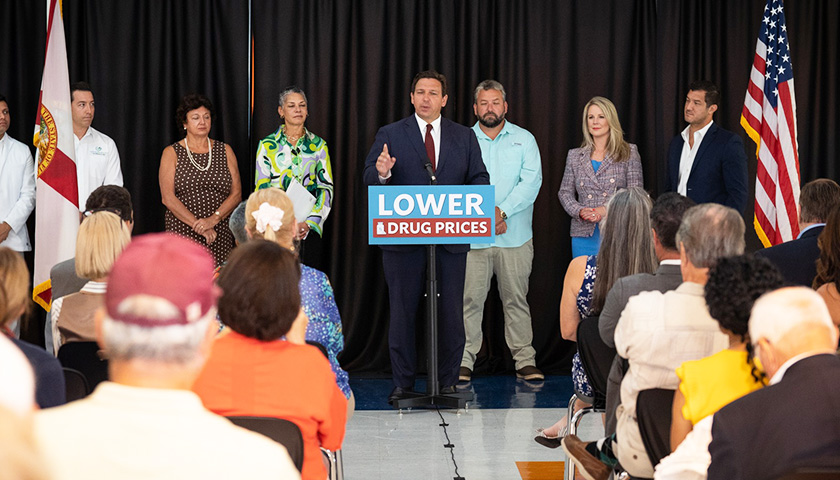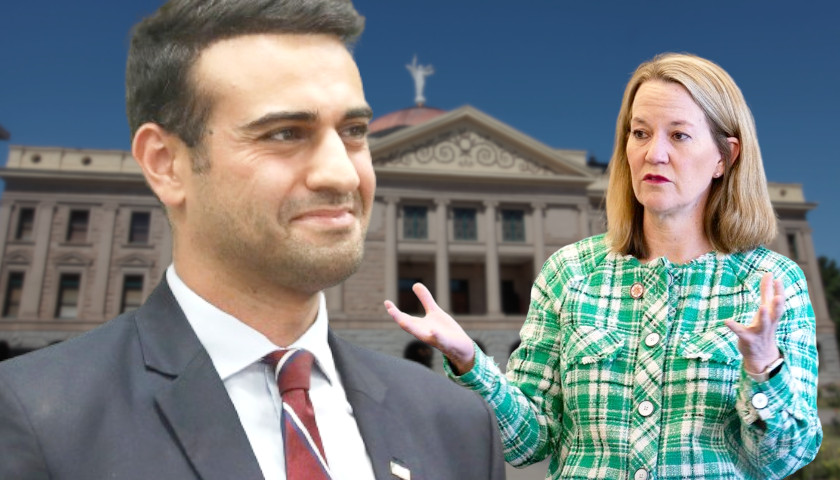On Friday, Governor Ron DeSantis issued Executive Order 22-164, which is focused on lowering the costs of prescription drugs for Floridians by promoting transparency. The order will ensure reforms are in place to hold pharmacy benefits managers (PBMs) accountable when managing prescription drug benefits for insurance companies. PBMs are third-party administrators of prescription drug programs.
Gov. Ron DeSantis signed the executive order at a press conference at Cape Coral High School.
“This executive order is really probably the first time Florida as a state has taken action to ensure that we’re saving money for Floridians regarding the middlemen and what happens with the prescription drug programs,” DeSantis said. “I think it’s going to be very, very meaningful.”
“For far too long leaders have chosen the path of inaction, rather than action, and fallen victim to a pharmaceutical system driven by drug companies rather than consumers,” said Agency for Health Care Administration Secretary Simone Marstiller. “Fortunately, Governor DeSantis leads with principle, always putting Floridians first and today’s actions will further this commitment by providing insight into the FDA’s review process and all agency health care contracts through the end of the decade.”
The order directs all executive agencies to include the following in all future contracts with PBMs:
- Prohibit spread pricing
- Prohibit reimbursement clawbacks
- Include data transparency and reporting requirements
- Review all rebates, payments and relationships between pharmacies, insurers and manufacturers
- Amend all current contracts they can with the same provisions
Spread pricing occurs when PBMs reimburse pharmacies one price for a drug but charges the health plan another, driving up profits for PBMs. Pharmacies have complained that sometimes the reimbursement rate from PBMs is lower than the actual cost to acquire the drug.
The clawback issue relates to how PBMs assign a prescription claim that is much more expensive than the pharmacy’s acquisition charge for a drug. This process results in more expense for consumers via their copay and higher profits for PBMs.
Florida has taken previous actions to lower the costs of prescription drugs for residents that continue to be stalled by the federal government. The state’s landmark Canadian Prescription Drug Importation program has been under review by the FDA for nearly 600 days.
Governor DeSantis also announced today that the Agency for Health Care Administration (AHCA) filed a Freedom of Information Act (FOIA) request to gain insight into the status of their proposal to lower drug costs for Floridians.
In response to federal government inaction, Governor DeSantis granted AHCA authority to negotiate prices for drugs ineligible for importation, such as insulin and epinephrine. This will reinforce the demand for Florida’s Canadian Prescription Drug Importation Program and provide another avenue to impact the price Floridians pay for prescription drugs.
– – –
Steve Stewart is a senior contributor at The Florida Capital Star.
Photo “DeSantis Signs an Executive Order to Hold Pharmacy Benefits Managers Accountable and Drive Transparency in Prescription Costs” by Governor Ron DeSantis.








